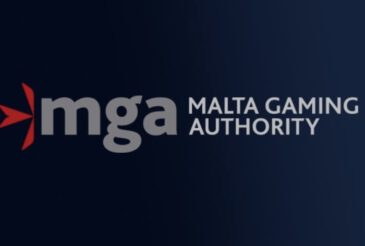
Following the passing of Private Members Bill C-218 that made single event sports betting legal in Canada it was expected that sports fans would be placing bets on headline events like the Superbowl in 2022 through Fan Duel, theScore, BetMGM and other big name sportsbooks, with Ontario leading the way. However, setting up the new market is proving to be no easy task and it now looks like we won’t be seeing the first private betting firms in operation until at least February of the new year.
According to a report in the Toronto Star back in early December, five industry sources have said that there are still outstanding issues around ‘game conditions, data management and security requirements’ that need to be resolved before operators can start applying for licenses to take bets in what is expected to be one of the biggest regulated markets in North America.
Until then, the only website legally taking sports bets in Ontario continues to be the provincially governments own OLG.com.
Is Ontario’s Proposed Set-Up Legal?
The process of finalising the details of how the regulated market will operate is being carried out against the backdrop of a report published by Ontario’s Auditor General, Bonnie Lysyk, in December that questioned the legality of the proposals. The main thrust of Lysyk’s argument is that the new internet gaming market may not comply with Canada’s criminal code, leaving it open to a legal challenge in the future.
In short, under the Criminal Code of Canada, commercial gambling is only permitted where it is ‘conducted and managed’ by a province. This is how the Ontario Lottery and Gaming Corporation, run by the province, can legally take bets. In the new market, the auditor questions whether too much ppower to ‘conduct and manage’ is being ceded to the private operators themselves.
In particular, Lysyk’s report points out that, “Under Ontario’s new model for internet gaming, key responsibilities to maintain integrity and fairness have been entrusted to the private sector such as direct testing of internet gaming systems, game design, gaming systems, determination of payouts, and odds-setting.”
Arguments around self-regulation are not new to the industry. They are playing out in one of the world’s biggest gambling markets, the UK, right now as law-makers review the Gambling Act there and seek to impose stringent affordability checks and restrictions on products like slots in order to reduce problem gambling. For their part, the Ontario Ministry of the Attorney General have now responded to the Auditor General’s report by saying that independent testing lab, Gambling Laboratories International, will be testing all games and platforms before they go live in the province, whilst a formal Dispute Resolution Policy is will be in place to allow customers to escalate any complaints that they have against operators.
The report from the Auditor draws attention to potential conflicts of interest between the role of the Alcohol and Gaming Commission of Ontario’s role as regulator and their subsidiary, iGaming Ontario’s role in charge of conduct and management of the market.
Whilst the Ministry’s response to recommendations outlined in the Auditor General’s report are fairly robust it appears that there is still some work to do to ensure that the newly regulated market is compliant with Canada’s Criminal Code and can be sure of providing fair, safe and secure gambling to the public.
Current expectations are still that the first legal bets from private firms in Ontario will be taken by early Spring, but no exact date has yet been finalised. In the meantime, keep watching this space for more details.
How Will Operators Apply for Licensing?
Oversight of the iGaming industry in Ontario will fall under the control of the Alcohol and Gaming Commission of Ontario (AGCO) and its subsidiary, iGaming Ontario. Back in the autumn the AGCO had announced that it would be accepting application for licenses with a view to awarding those licenses in the first weeks of the new year.
The role of iGaming Ontario in all this is to set out the commercial agreements to be entered into between the government and the betting firms. There are several other steps for prospective operators to take in this process:
- Register with the iGaming Ontario portal and sign a Non-Disclosure Agreement
- Register with the AGCO
- Terminate any unregulated gaming activity currently undertaken in Ontario
- Terminate any ties with other companies carrying out unregulated gaming activity in Ontario
- Operators must also receive Gambling Laboratories International GLI-33 certification of their platform and games before a license will be granted.
We expect to hear news of the first round of licensing in January and February 2022.
Useful Resources
- iGaming Ontario Roadmap to Regulation
- AGCO Statement on the Future of Internet Gaming
- Auditor General’s Report on Internet Gaming in Ontario






